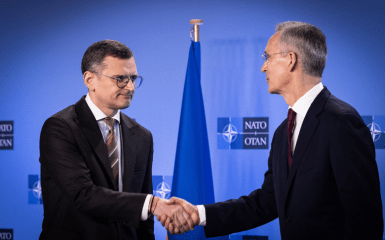Ukraine's invitation to NATO is impossible while the Russian invasion continues. At the same time, the allies want to show at the 75th Alliance summit in Washington that they support Ukraine "in the long term".
NATO is looking for a way to support Ukraine without inviting it to the Alliance
The New York Times, citing unnamed NATO officials writes that alliance officials agree that Ukraine's invitation to NATO will not take place at the July summit in Washington.
The NYT writes that "through the collective security agreement, this would involve [NATO] in the biggest land war in Europe since 1945."
Therefore, NATO is looking for "some kind of middle ground, something closer to membership, but meaty enough to show that it supports Ukraine in the long term."
According to high-ranking Western diplomats who participated in the discussions, it is not yet known what this will be.
The United States and Germany remain opposed to inviting Ukraine to begin membership negotiations at the summit.
At the same time, they want to provide Ukraine with concrete obligations that they can fulfil.
Proposals put forward this week at a meeting of foreign ministers in Brussels to give NATO greater control over the coordination of military aid, funding and training of the Ukrainian armed forces were immediately met with scepticism.
Stoltenberg's proposals for aid to Ukraine
At this week's meeting, NATO Secretary General Jens Stoltenberg put forward two proposals regarding continued support for Ukraine.
He hopes they can be approved in time for a meeting of NATO heads of state in Washington in July.
The first is to put NATO, not the USA, in charge of coordinating donations and arms deliveries to Ukraine.
This drew objections from Hungary and other allies because of the potential to draw the alliance more directly into the war. The USA is also opposed to this.
The second is to provide Ukraine with $100 billion in aid over five years.
It has been met with scepticism because it is unclear how NATO can force its member countries to contribute — especially given budgetary or political constraints.




